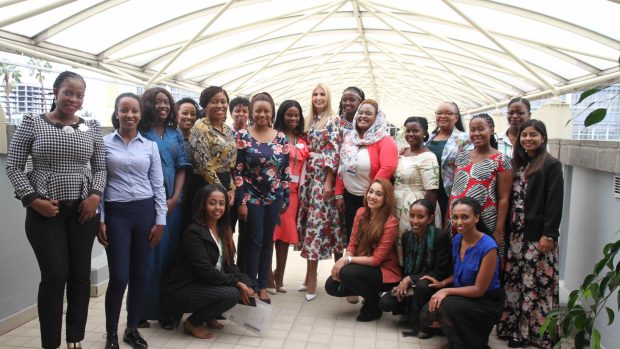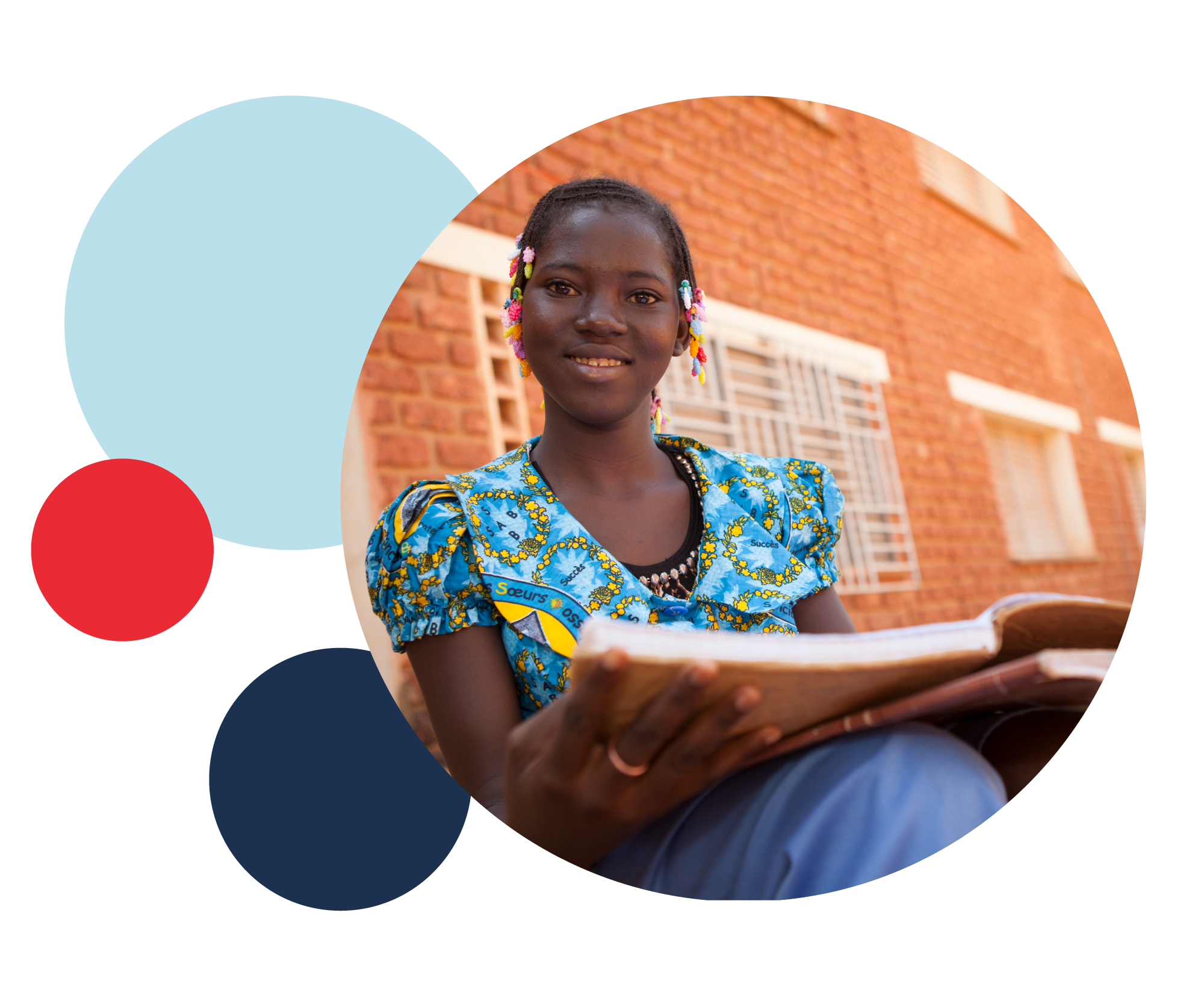Women’s Global Development and Prosperity Initiative

Introduction
Overview
When women are economically empowered, they re-invest in their families and communities, producing a multiplier effect that spurs economic growth and contributes to global peace and stability. In February 2019, President Trump established the Women’s Global Development and Prosperity (W-GDP) Initiative, also led and created by Advisor to the President, Ivanka Trump. This initiative is the first whole-of-government effort to advance global women’s economic empowerment.
W-GDP seeks to reach 50 million women in the developing world by 2025 through U.S. government activities, private-public partnerships, and a new, innovative W-GDP Fund. In its first year, W-GDP reached 12 million women worldwide.
The W-GDP Initiative aims to enhance opportunities for women to participate meaningfully in the economy and advance both prosperity and national security. W-GDP focuses on three pillars: Women Prospering in the Workforce, Women Succeeding as Entrepreneurs, and Women Enabled in the Economy.

Women Enabled in the Economy
Remove Restrictive Legal, Regulatory, and Cultural Barriers
The environment for economic activity in any country often includes numerous barriers that disadvantage women as they pursue employment, business, and investment opportunities. Broadly defined, the enabling environment for women in the economy encompasses the legal and regulatory framework, policies and practices (public and private sector), and social norms that support women to operate in the formal economy, or improve basic conditions for women working in the informal economy. Conversely, each of these factors, if not addressed, can stunt women’s economic empowerment.
Women are frequently discouraged and often effectively barred from economic engagement by disproportionate burdens of unpaid care, gender-based violence, underinvestment in their education, need for spousal approval for employment, and legal barriers to participation in certain professions. Some of the economic barriers women face arise from foundational limitations, such as laws that limit women’s rights to inherit, own property, or enter contracts in their own name. Reducing those barriers while ensuring women have the legal and policy protections they need requires deliberate efforts by government, private sector, and civil society.
Examining legal barriers specifically, W-GDP is focusing its efforts on five foundational factors that include women’s ability to access institutions, build credit, manage property, travel freely, and work in the same sectors and jobs as men.
- Accessing Institutions: Reduce restrictions on women’s authority to sign legal documents such as contracts and court documents. Address unequal access to courts and administrative bodies for women, whether officially or though lack of proper enforcement.
- Building Credit: Ensure women’s equal access to credit and capital to start and grow their businesses. Prohibit discrimination in accessing credit by sex or marital status.
- Owning and Managing Property: Lift restrictions for women on owning and managing property, including limitations on inheritance and the ability to transfer, purchase, or lease property.
- Traveling Freely: Address constraints on women’s freedom of movement, including restrictions on obtaining passports.
- Removing Restrictions on Employment: Remove restrictions that limit women’s working hours, occupations, or tasks.
The benefits of women in the economy are substantial. Countries with greater balance of men and women in the workplace and workforce have greater growth, innovation, and stability. The same goes for firms: those with a stronger ratio of women in leadership, management, and the workforce outperform those with fewer women. While only five percent of the CEOs in Africa are women, the positive impact of female leadership is clear: businesses in Africa with the most women on their boards have an operating profit over 20 percent higher than industry averages. Improvements in the enabling environment increase economic opportunities for all women in that economy, which in turn benefits their families, communities, firms, and nations as a whole through broad-based economic growth and development.
The larger the opportunity gap between men and women, the more likely a country is to be involved in violent conflict. Conversely, nations in which women have equal opportunities are more likely to thrive and solve challenges peacefully.
Women’s economic empowerment and equality exists when the enabling environment reduces the barriers women face to participating in the economy, whether those are legal, regulatory or cultural.
